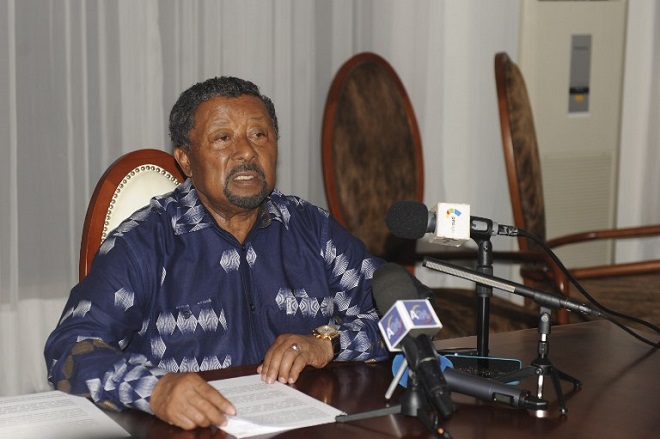
Libreville, Gabon | AFP |
Gabon opposition leader Jean Ping on Thursday appealed to the country’s highest court Thursday in an attempt to have a wafer-thin presidential election loss overturned.
Ping insists he was the winner of the August 27 presidential election — which gave incumbent Ali Bongo a narrow win — and lodged an appeal with the Constitutional Court, his campaign team said.
“Jean Ping has a petition with the Constitutional Court requesting a review… of the results of the August 27, 2016, presidential election in Haut-Ogooue province,” Bongo’s family fiefdom, said a member of his legal team, Jean-Remy Batsantsa.
Batsantsa said the appeal was for a “recount of votes in this province, polling station by polling station, through comparison of records held by the Cenap (the national electoral commission) and all parties.
“Serious anomalies”
“We are asking for the Court to determine that there are serious anomalies” in a count which saw Bongo declared the winner by a whisker, said Batsantsa, echoing a finding by EU observer head Maryia Gabriel.
“An analysis of the number of non-voters as well as blank and disqualified votes reveals a clear anomaly in the final results in Haut-Ogooue,” an EU election observer mission said in a statement Tuesday.
Bongo accused some members of the mission of overstepping its mandate.
And the foreign minister said “many inconsistencies” had been noted in the observers’ behaviour.
“We have the impression that the observer mission wanted to become a control mission,” he said.
Batsantsa said that a compilation of returns from Haut-Ogooue made it clear that “there is no way that Ali Bongo can win this election.”
Bongo himself has said he will contest a number of results attributed to his rival.
The court’s nine judges now have 15 days to hand down a ruling on the appeal.
Haut-Ogooue is a Bongo stronghold where the incumbent won more than 95 percent of the vote on an official turnout of more than 99 percent.
‘A trap’
Ahead of the appeal announcement, the government said a planned visit to Gabon of African Union heads of state had been indefinitely postponed.
Ping, who believes Bongo has the court in his pocket, has rejected an official August 31 announcement that Bongo won by fewer than 6,000 votes.
That outcome prompted several days of riots amid opposition claims the election had been stolen.
During the unrest, the parliament building was set ablaze, many shops were looted and life in the capital brought to a standstill.
The government says three people died in the unrest, dismissing some opposition claims that between 50 and 100 people lost their lives.
Citing Gabon’s constitution and election laws, Bongo has dismissed Ping’s demand for a recount.
“If we go to the constitutional court, we will enter a trap we can never escape,” a close associate of Ping had warned Wednesday.
“The dice are loaded at the court,” he said, comparing the institution to “the Tower of Pisa that always leans the same way”.
But he conceded the wisdom of keeping the fight within the law.
“That’s what France, the US and the European Union are asking,” he said, adding he hoped such international pressure would also be brought to bear to ensure a fair ruling.
“No danger”
France took pains Thursday to dismiss the common perception it was still a power-broker in its former colony Gabon.
“Times have changed,” government spokesman Stephane Le Foll told a news conference in Paris.
“There is no more France-Afrique,” he said, using a somewhat derisive term for Paris’s close relationship with its former colonies.
“France is not here to make decisions for African countries; we are here to help find a solution and support the African Union (AU) mission,” he said.
Announcing the shelving of the AU delegation’s visit, Foreign Minister Emmanuel Isozet Ngondet said such a mission was uncalled for.
“There is no danger here, no explosive security or humanitarian situation which justifies a rather robust intervention from the international community,” he told a news conference.
An AU “good offices” mission had been due in Libreville on Friday.
The central African nation has been ruled by the Bongo family since 1967.
 The Independent Uganda: You get the Truth we Pay the Price
The Independent Uganda: You get the Truth we Pay the Price



